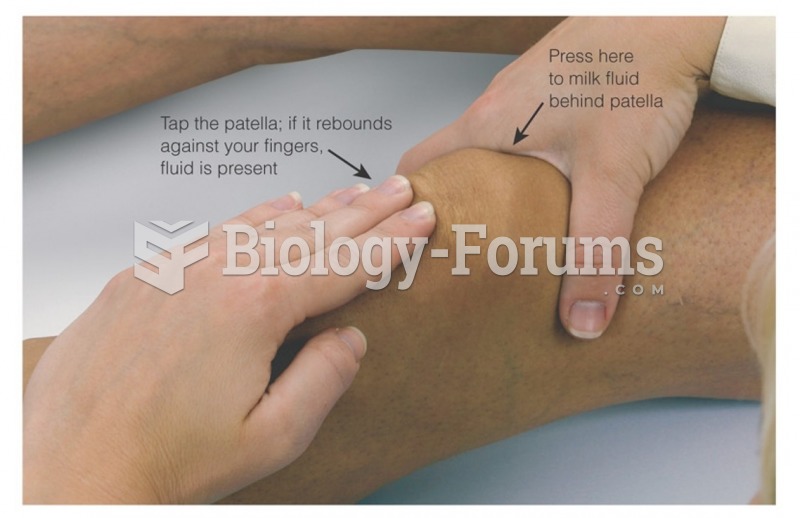|
|
|
GI conditions that will keep you out of the U.S. armed services include ulcers, varices, fistulas, esophagitis, gastritis, congenital abnormalities, inflammatory bowel disease, enteritis, colitis, proctitis, duodenal diverticula, malabsorption syndromes, hepatitis, cirrhosis, cysts, abscesses, pancreatitis, polyps, certain hemorrhoids, splenomegaly, hernias, recent abdominal surgery, GI bypass or stomach stapling, and artificial GI openings.
Intradermal injections are somewhat difficult to correctly administer because the skin layers are so thin that it is easy to accidentally punch through to the deeper subcutaneous layer.
There are more bacteria in your mouth than there are people in the world.
Eat fiber! A diet high in fiber can help lower cholesterol levels by as much as 10%.
The Babylonians wrote numbers in a system that used 60 as the base value rather than the number 10. They did not have a symbol for "zero."
 Testing the effects of long-term fertilizing on inter-actions between mycorrhizal fungi and plants o
Testing the effects of long-term fertilizing on inter-actions between mycorrhizal fungi and plants o
 Studies in landscape ecology indicate that interactions between biotic and abiotic processes are dep
Studies in landscape ecology indicate that interactions between biotic and abiotic processes are dep





